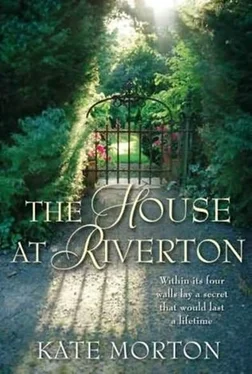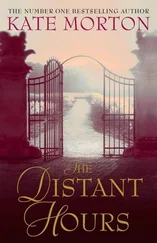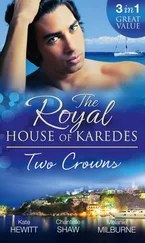Her question startled me. Its timing. ‘I… I couldn’t say, ma’am.’ I laid her fox-tail coat along the base of the steamer trunk.
‘Oh, you’d know if you had,’ she said.
I avoided her gaze. Tried to sound indifferent; hoped that it would cause her to change the subject. ‘In that case, I’d have to say no, ma’am.’
‘Probably a lucky thing.’ She turned back to the window. ‘True love, it’s like an illness.’
‘An illness, ma’am?’ I certainly felt sick enough then and there.
‘I never understood it before. In books and plays. Poems. I never understood what drove otherwise intelligent, right-thinking people to do such extravagant, irrational things.’
‘And now, ma’am?’
‘Yes,’ she said softly. ‘Now I do. It’s an illness. You catch it when you least expect. There’s no known cure. And sometimes, in its most extreme, it’s fatal.’
I let my eyes close briefly. My balance faltered. ‘Not fatal, ma’am, surely?’
‘No. You’re probably right, Grace. I exaggerate.’ She turned to me and smiled. ‘You see? I’m a case in point. I’m behaving like the heroine in some awful penny novelette.’ She was quiet then but must have continued to think along the same lines, for after a while she tilted her head quizzically and said, ‘You know, Grace, I always thought that you and Alfred…?’
‘Oh no, ma’am,’ I said quickly. Too quickly. ‘Alfred and I were never more than friends.’ The hot sting of a thousand needles in my skin.
‘Really?’ She pondered this. ‘I wonder what made me think otherwise.’
‘I couldn’t say, ma’am.’
She watched me, fumbling with her silks, and she smiled. ‘I’ve embarrassed you.’
‘Not at all, ma’am,’ I said. ‘It’s just that…’ I clutched at conversation. ‘I was just thinking of a recent letter I received. News from Riverton. It’s a coincidence you should ask after Alfred just now.’
‘Oh?’
‘Yes, ma’am.’ I couldn’t seem to stop. ‘Do you remember Miss Starling that used to work for your father?’
Hannah frowned. ‘That thin lady, with the mousy hair? Used to tiptoe about the house with a typing machine?’
‘Yes, ma’am, that’s her.’ I was outside myself then, watching and listening as somehow I gave every appearance of carelessness. ‘She and Alfred were married, ma’am. Just this last month past. They’re living in Ipswich now, running his mechanical business.’ I closed her trunk and nodded, kept my gaze low. ‘Now if you’ll excuse me, ma’am, I believe Mr Boyle needs me downstairs.’
I closed the door behind me and I was alone. I clamped my hand to my mouth. Clenched my eyes shut. Felt my shoulders shaking, moist clicks in my throat.
My skeleton seemed to lose some crucial integrity and I crumpled. Seeped, shoulder first, into the wall, longing to disappear into the floors, the wall, the air.
There I remained. Immovable. I had vague visions of Teddy or Deborah finding me in the darkened hallway when time came for them to make their way to bed. Mr Boyle being called to arrange for my removal. And I felt nothing. No shame. No duty. For what did it matter? What did any of it matter any more?
Then somewhere downstairs, a crash. Plates and cutlery.
A breath caught in my throat. My eyes opened. The present rushed upon me, refilled me.
Of course it mattered. Hannah mattered. Now more than ever she needed me. The move back to Riverton, being without Robbie.
I exhaled shakily. Levelled my shoulders and swallowed. Forced my throat to relax.
Little use would I be if I gave myself over to self-indulgence, became so weighed down with self-pity I was distracted from my duties.
I pushed away from the wall, smoothed my skirt and straightened my cuffs. Wiped my eyes.
I was a lady’s maid. Not a petty housemaid. I was relied upon. Could not be given to episodes of such imprudent abandon.
I exhaled again. Deeply. Purposefully. Nodded to myself and walked large, definite steps down the hall.
And as I climbed the stairs to my room, I forced closed the horrid door in my mind through which I’d briefly glimpsed the husband, the hearth, the children I might have had.
Ursula has come as promised. We are driving the winding lane toward the village of Saffron Green. Any moment now we’ll take a bend and there’ll be tourist signs welcoming us to Riverton. I glance at Ursula’s face while she drives; she smiles at me then returns her attention to the road. Any misgivings she might have had about the wisdom of our excursion, she has pushed aside. Sylvia wasn’t pleased, but she agreed not to tell Matron, to stall Ruth if needs be. I suspect I am giving off the stench of last opportunities. It is too late to worry about preserving me for the future.
The metal gates are open. Ursula turns the car into the driveway and we weave our way toward the house. It is dark, the tunnel of trees is strangely still, strangely silent, as it always was, listening for something. We turn the last corner and the house is upon us. Just as it has been so many times before: my first day at Riverton, fourteen years old and green as a gardener’s thumb; the day of the recital, rushing from Mother’s, full of expectation; the evening of Alfred’s proposal; the morning in 1924 when we returned to Riverton from London. Today is a homecoming, of sorts.
There is a concrete car-parking space nowadays, after the driveway and before the Eros and Psyche fountain. Ursula winds her window down as we approach the toll booth. She has a word with the guard who waves us through. On account of my obvious frailty, she is given special dispensation to drop me off before finding a parking space. She drives around the turning circle-bitumen now, rather than gravel-and stops the car at the entrance. There is a little iron garden seat by the portico, and Ursula leads me to it, settles me, then returns to the car park.
I am sitting there, thinking of Mr Hamilton, wondering how many times he answered the Riverton front door before his heart attack in the spring of 1934, when it happens.
‘Good to see you back, young Grace.’
I squint up into the watery sun (or is it my eyes that are watery?) and there he stands, on the top step.
‘Mr Hamilton,’ I say. I am hallucinating, of course, but it seems churlish to ignore an old comrade, no matter he’s been dead sixty years.
‘We’ve been wondering when we might see you again. Mrs Townsend and I.’
‘You have?’ Mrs Townsend passed soon after him: a stroke in her sleep.
‘Oh, aye. We always like it when the young ones return. We get a little lonely, just the two of us. No family to serve. Just a lot of hammering and knocking and dirty boots.’ He shook his head and cast his eyes upward to take in the arch of the portico. ‘Aye, the old place has seen a lot of changes. Just wait till you see what they’ve done with my pantry.’ He smiles at me, down his long burnished nose. ‘And tell me, Grace,’ he said gently. ‘How are things with you?’
‘I’m tired,’ I say. ‘I’m tired, Mr Hamilton.’
‘I know you are, lassie,’ he says. ‘Not long now.’
‘What’s that?’ Ursula is by my side, pushing her parking ticket into her purse. ‘Are you tired?’ Concern knots her brow. ‘I’ll see about hiring a wheelchair. They’ve put lifts in as part of the renovation.’
I tell her perhaps that might be best, and then I sneak a glance back at Mr Hamilton. He is no longer there.
Inside the entrance hall a sprightly woman dressed like the wife of a 1940s country squire welcomes us and announces that our entrance fee includes the tour she’s about to start. Before we can demur, we are herded into a group with six other unwitting visitors: a couple of daytrippers from London, a schoolboy researching a local history assignment, and a family of four American tourists-the adults and son in matching running shoes and T-shirts that read I escaped the tower! , the teenage daughter tall, pale and dour, dressed all in black. Our tour leader-Beryl, she says, tweaking her name badge to verify the fact-has lived in the village of Saffron Green all her life and we are to ask her anything we’d like to know.
Читать дальше












